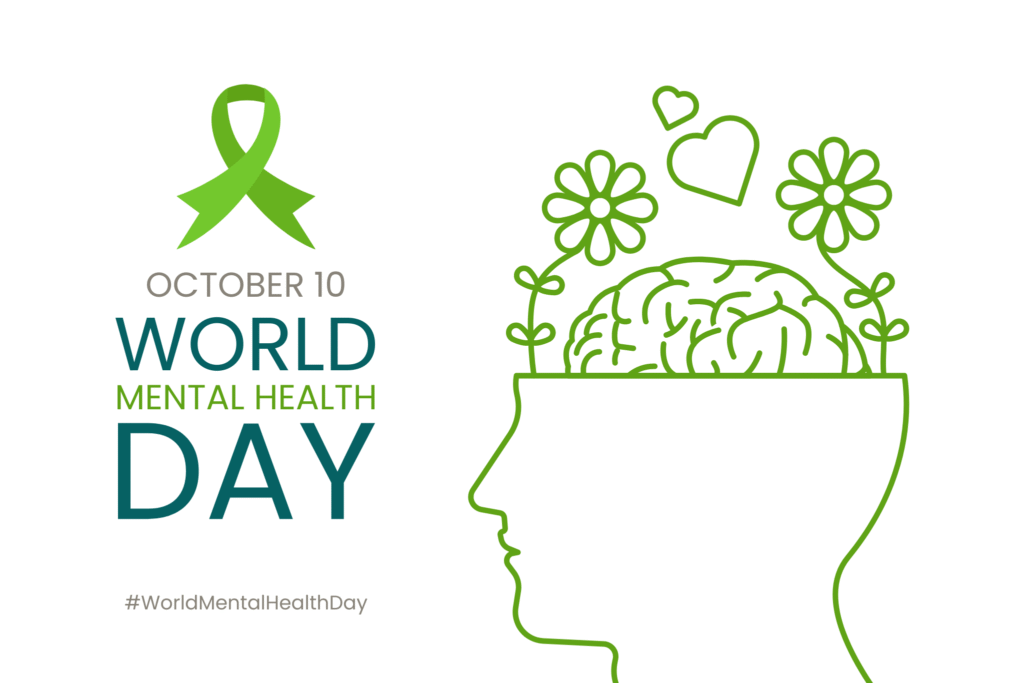Every year, on October 10, the world pauses to recognise the importance of mental well-being. This year’s World Mental Health Day carries a deeply human theme, “Access to services: mental health in humanitarian emergencies.” It is a call to remember that even in the darkest of times, when conflict, displacement, disaster, or loss tear through lives, mental health remains a right, not a privilege.
The Silent Wounds We Cannot See
When emergencies strike, the world rushes to provide food, shelter, and medicine. Yet amid the chaos, another kind of suffering often goes unnoticed; the invisible wounds carried in people’s minds and hearts.
Survivors of crises endure not only physical hardship but also grief, fear, trauma, and uncertainty. For many, these emotions linger long after the physical scars have healed. The loss of home, family, or community can shatter one’s sense of safety and identity. Recovery requires more than rebuilding walls; it requires restoring hope.
Mental Health Is Essential, Even in Emergencies
It is easy to think of mental health as something to be addressed later, after survival. But mental well-being is what helps people find strength to survive in the first place.
Access to psychosocial support, counselling, and safe spaces can mean the difference between despair and resilience. In humanitarian settings, mental health care is not a luxury; it is life-saving care.
Across Africa and around the world, millions live with the emotional consequences of crises. From communities affected by floods to families displaced by conflict, the burden of trauma continues to grow. In Nigeria, where humanitarian challenges and limited healthcare access often coexist, many still face stigma or lack of services when they need help most. This is why awareness, empathy, and advocacy matter.
A Shared Responsibility
The mental health impact of emergencies reaches far beyond the people directly affected by conflict or disaster. Humanitarian crises ripple across borders, touching families, communities, and nations.
We all share the responsibility to advocate for inclusive mental health services in emergency response plans, support organizations providing psychosocial care on the frontlines, and create communities where empathy replaces stigma and connection replaces isolation.
Governments and global health actors must also recognise that recovery is incomplete without mental well-being. Policies, funding, and healthcare systems must make mental health a permanent pillar of humanitarian aid, not an afterthought.
Finding Light in Shared Humanity
In every crisis, stories of courage remind us of our shared humanity: the volunteer who listens, the teacher who comforts displaced children, the community that rebuilds together. These acts show that healing begins not only with therapy but also with kindness, understanding, and presence.
At Smile Builders Initiative, we recognise that mental health is deeply connected to overall well-being. Non-communicable diseases such as hypertension, diabetes, and heart disease are closely linked to stress, trauma, and emotional health. Addressing mental health, especially in times of crisis, strengthens the foundation for a healthier and more resilient society.
This World Mental Health Day, let us choose compassion. Let us listen without judgment, support without hesitation, and stand with those navigating the unseen aftermath of crises.
Because even when the world shakes, the mind deserves to find peace.
#WorldMentalHealthDay2025
Mosopeoreoluwa Odufuwa,
Content Creation Team,
SmileBuilders Initiative.

